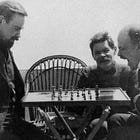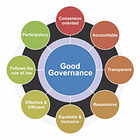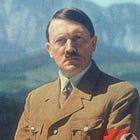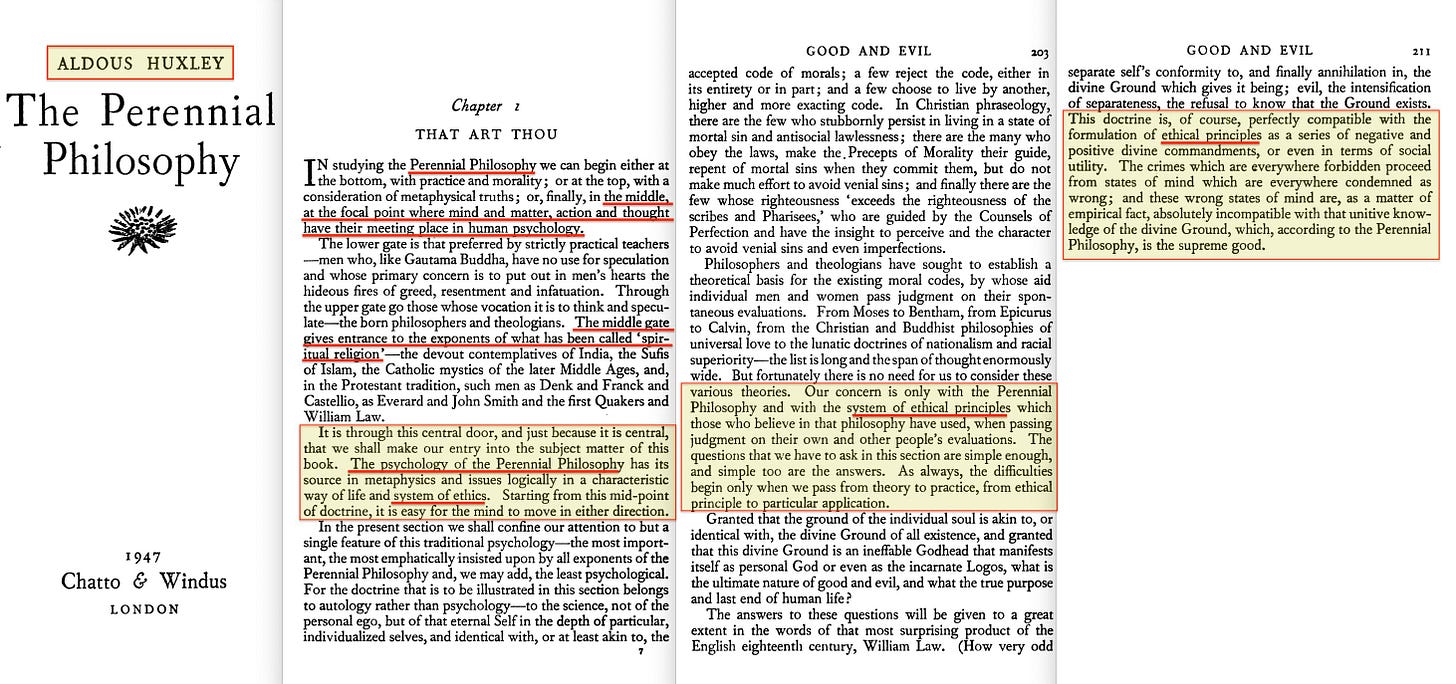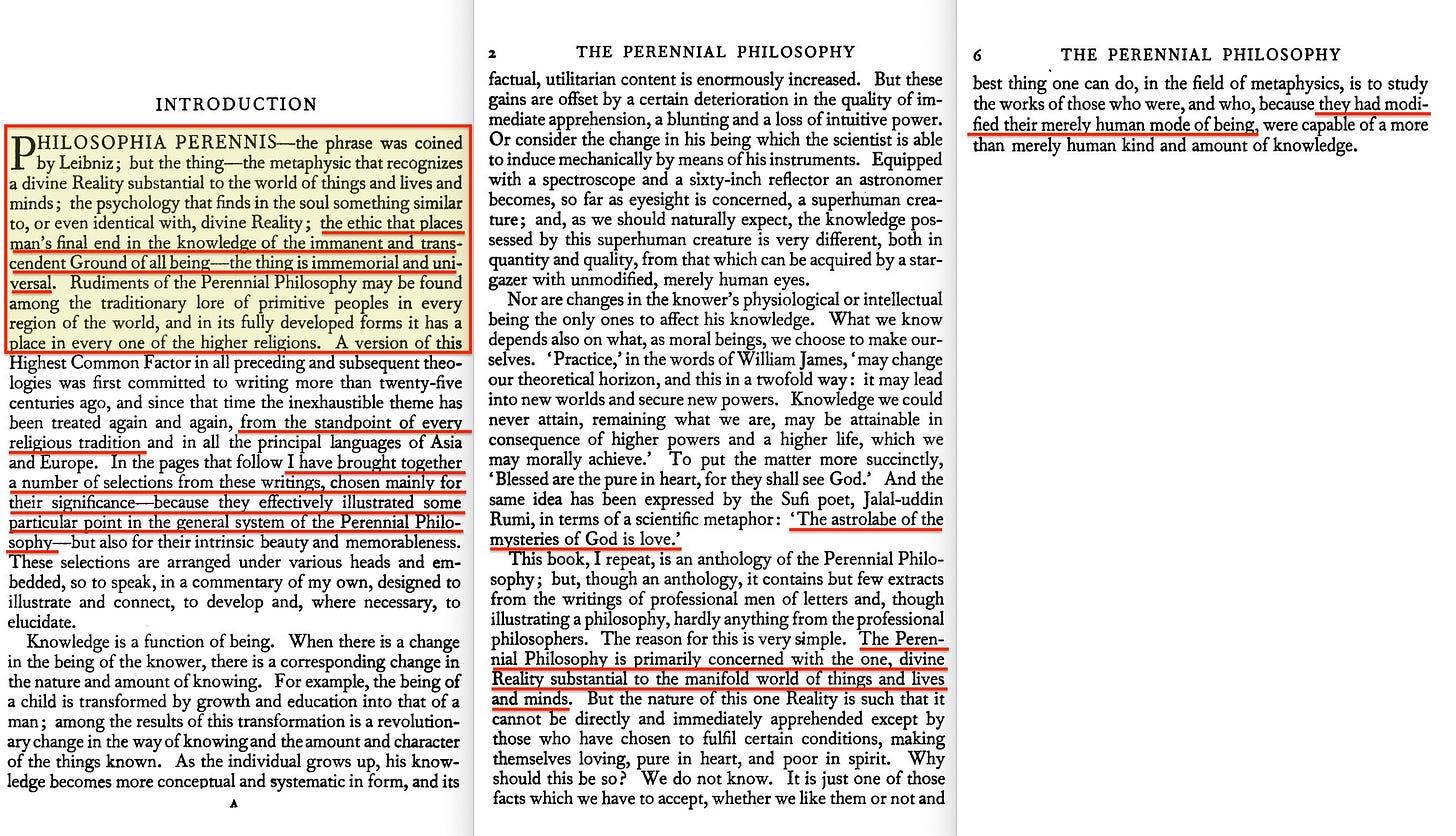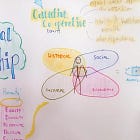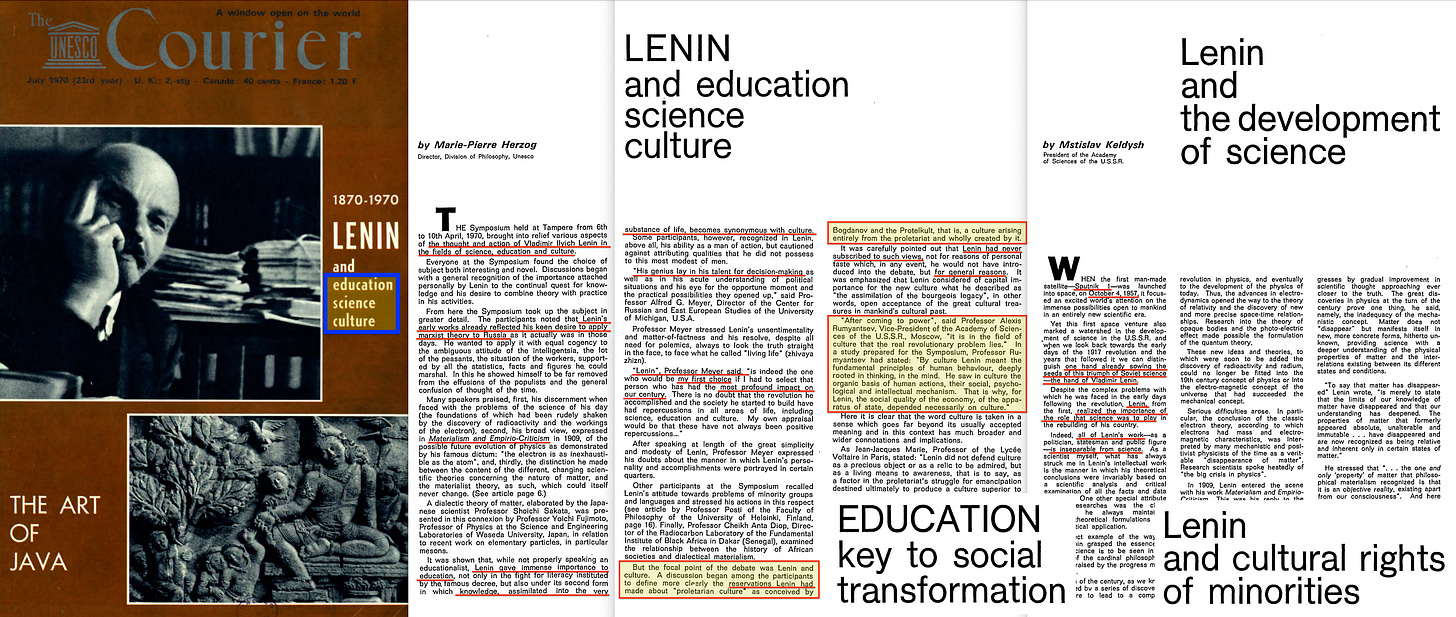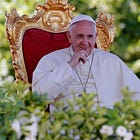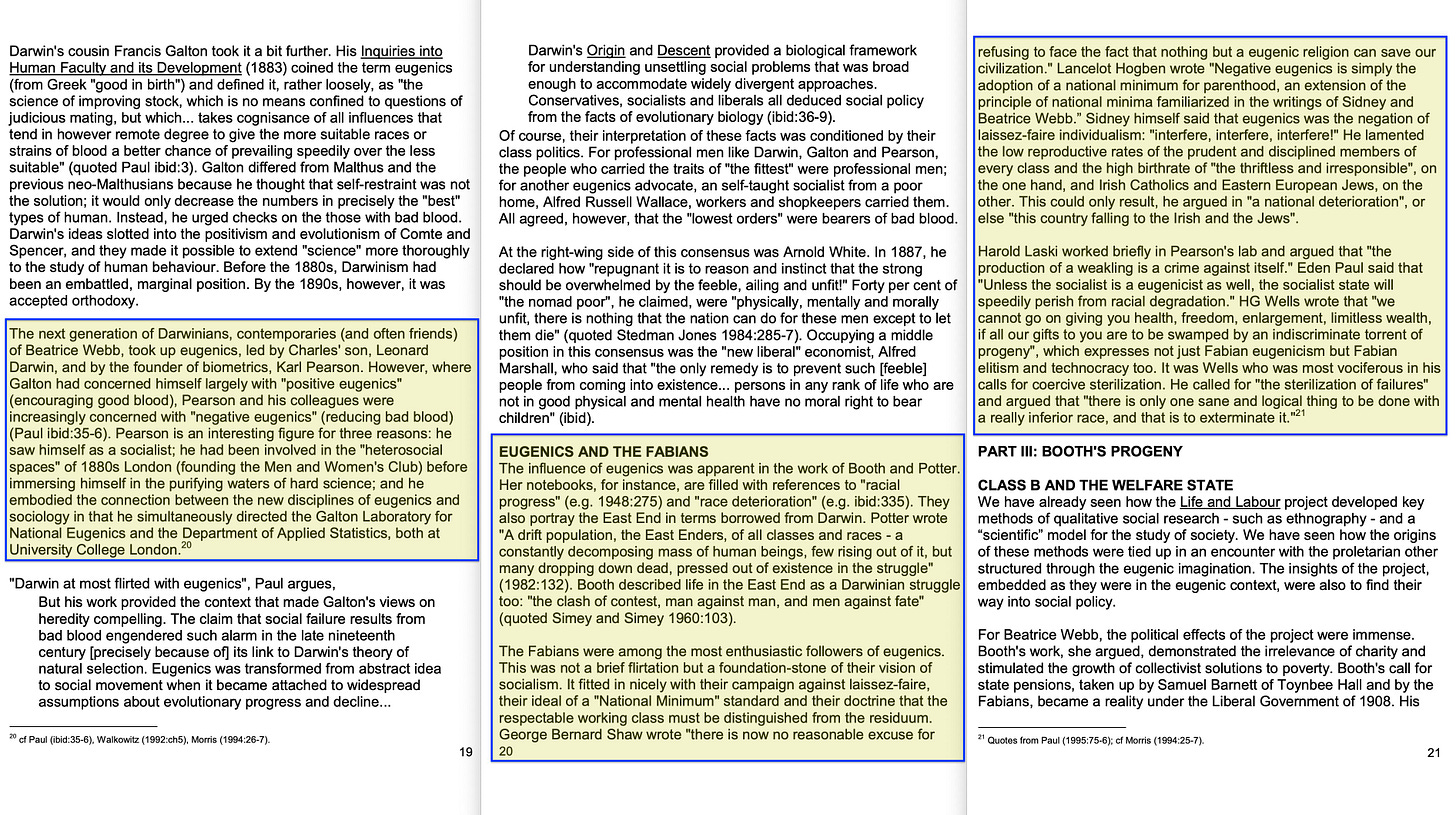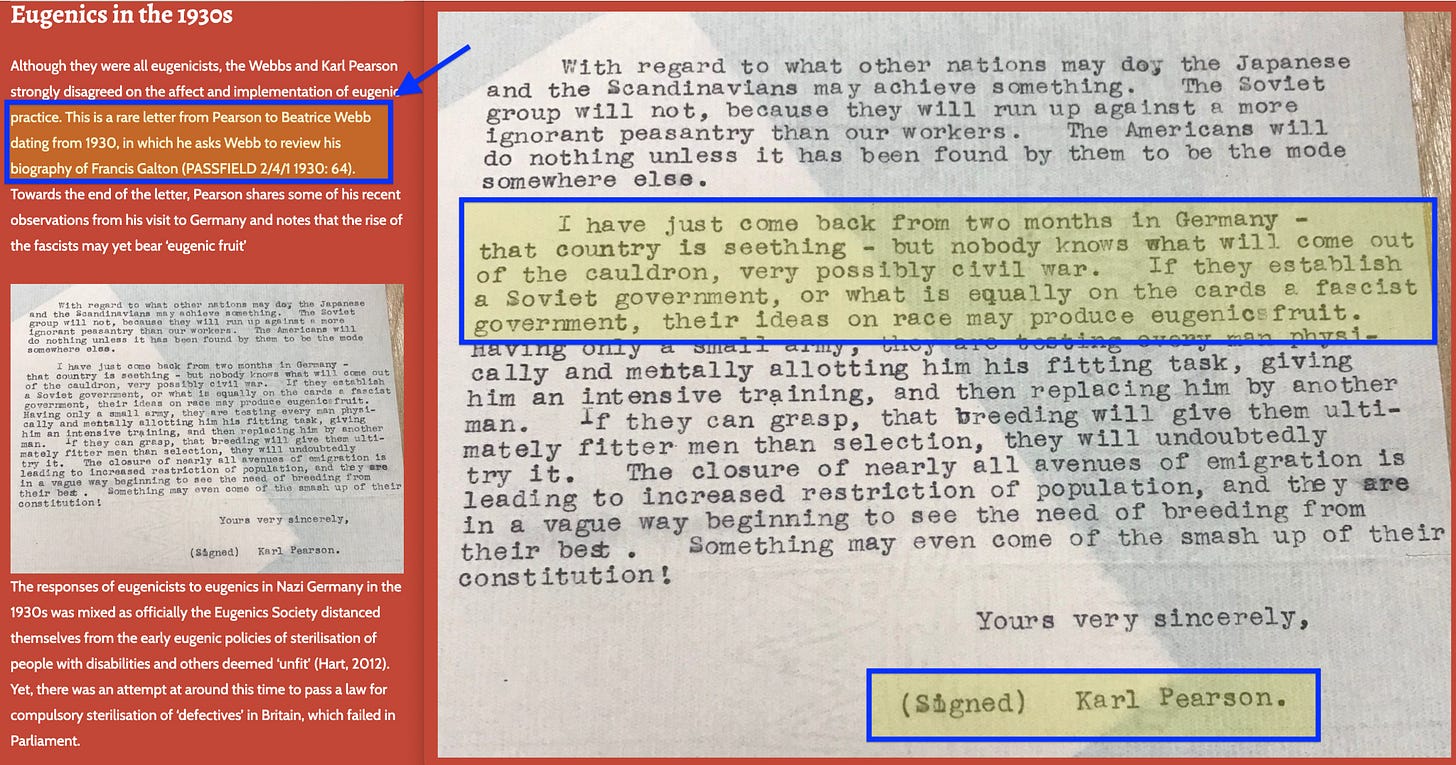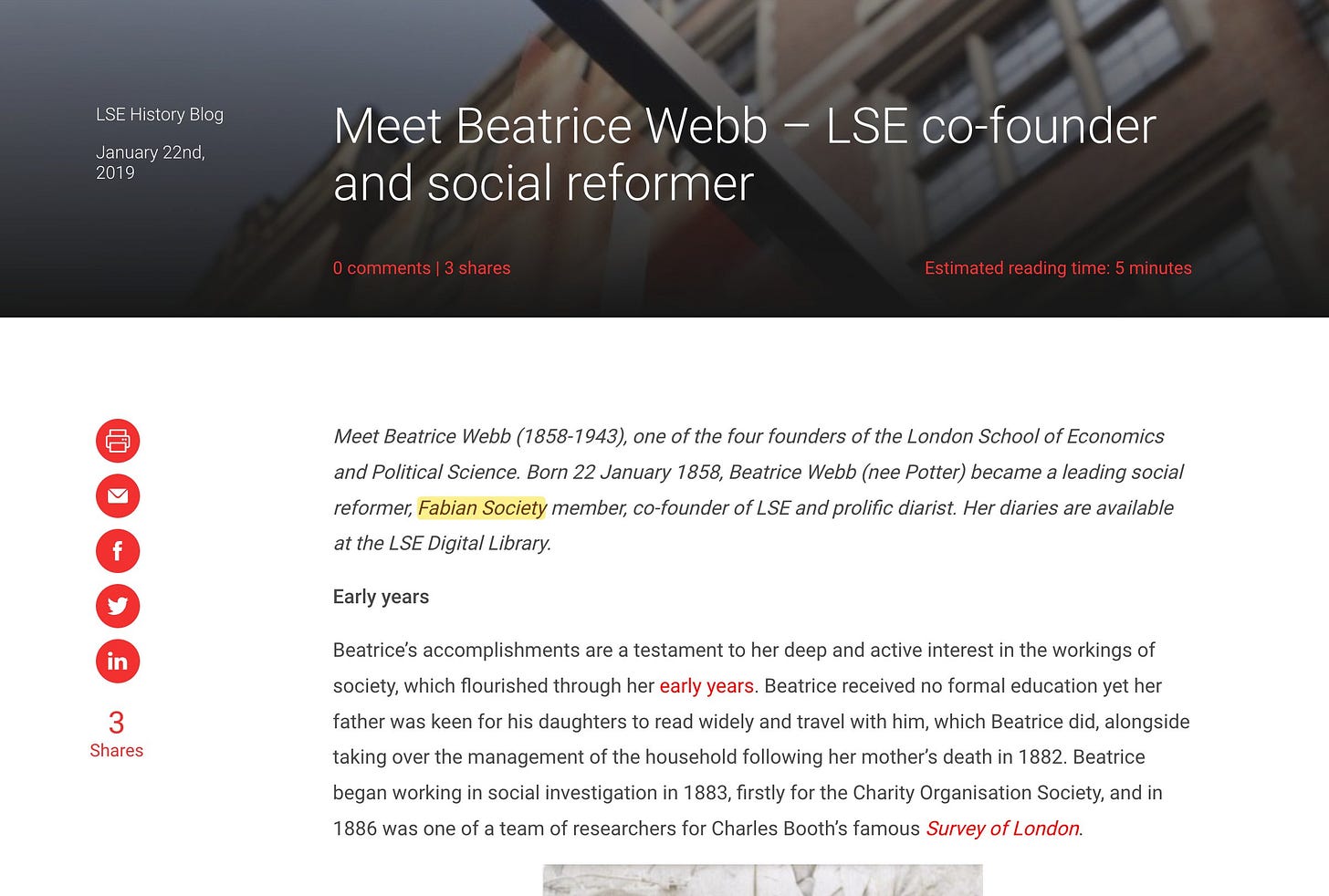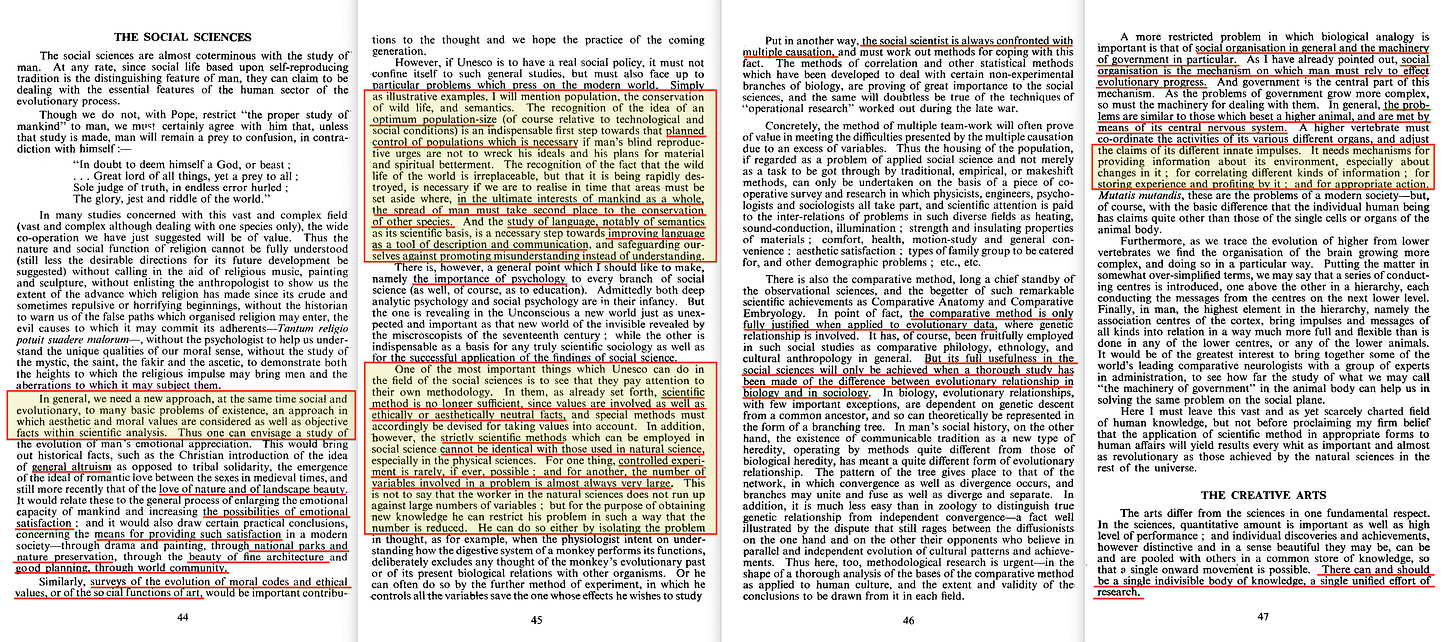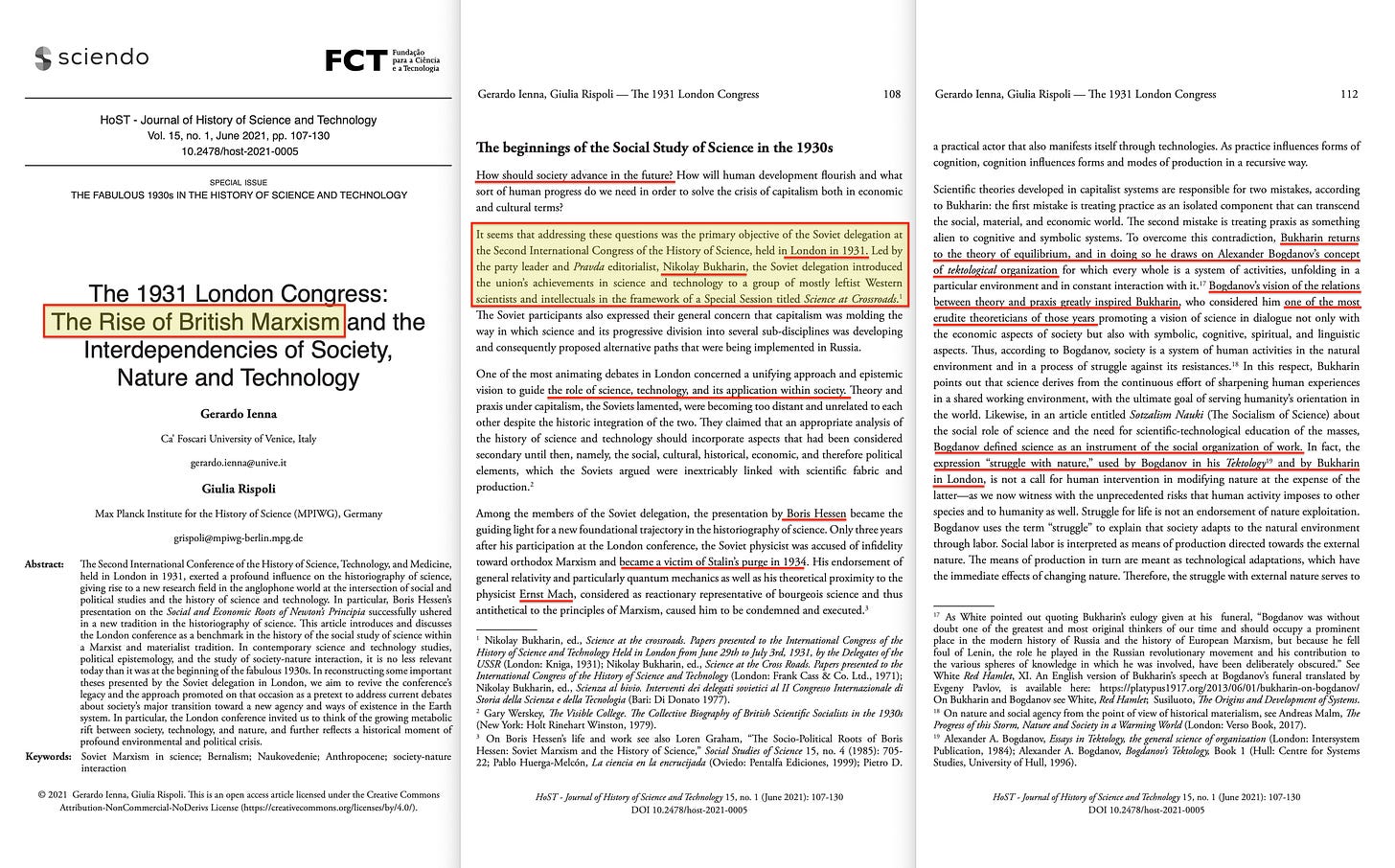It’s rare that a substack article of mine covers just one publication. And though this technically doesn’t either, the overriding emphasis here will be on just one, controversial document - Julian Huxley’s 1946 vision for UNESCO.
The document is from 19461, and originally led to all sorts of… correct readings2 -
‘The document was highly controversial. It was regarded by some as an attack on religion, by others as pro-communist.’
I will take a step further and unequivocally state that not only was the document in question pro-communism, but that Huxley in fact was nothing short of a Scientific Socialist. But before we get to the primary document, let’s zip through a UNESCO Courier article from 1991, titled ‘A Planetary Utopia‘ -
‘A central conflict of our times is that between nationalism and internationalism, between the concept of many national sovereignties and one world sovereignty‘
Sure, at this stage he’s merely identifying the conflict, but -
‘Two obvious corollaries follow. First, that the more united man's tradition becomes, the more rapid will be the possibility of progress: several separate or competing or even mutually hostile pools of tradition cannot possibly be so efficient as a single pool common to all mankind‘
… he almost immediately thereafter recommends a centralised science depot, operating cross-boundary. And this is followed by -
‘The moral for Unesco is clear. The task laid upon it of promoting peace and security can never be wholly realized through the means assigned to education, science and culture. It must envisage some form of world political unity, whether through a single world government or otherwise, as the only certain means for avoiding war.‘
There are plenty of further controversial quotes, ranging from ‘common humanity‘ to ‘unrestricted individualism is equally erroneous‘, even ‘a unified common outlook and a common set of purposes‘. The guy was a raging collectivist, undoubtedly.
But while this article might appear… controversial… the full document is far worse.
It was initially the date of the UNESCO Courier issue that attracted my attention. See, in 1991 the IUCN launched ‘Caring for the Earth’3, which can be considered the moral call relating to their 1980 report, ‘World Conservation Strategy‘4 - incidentally the first report to use the term ‘Sustainble Development’ in contemporary context. And the year 1991 is of interest, as the Earth Summit in Rio followed in 1992. But the Courier issue also carried an article focusing on Alexander Bogdanov’s ‘Red Star’ novel.
And if there’s one person who piques my contemporary interest, it’s Bogdanov.
The artice itself isn’t of major importance -
‘The communist principle reigns supreme: from each according to his abilities, to each according to his needs. The Martians' basic need is to work, and they often change jobs to enjoy the pleasures of diversity. Economic stability is maintained by information-computing machines. Just imagine, computers in 1908!‘
Bogdanov, genuinely, was a genius. Not only did he invent the precursor to General Systems Theory, Tektology5 - universal organisational science - but he further developed Input-Output analysis - later credited to Leontief - delivered us Proletkult - cultural engineering - and even came up with the Gaia Hypothesis all the way back in the early 1920s.
‘Here again spiritual life leaves much to be desired. The Martians are polite and considerate, but incapable of emotion. The logic of expediency takes the place of inner motivation‘
The Marxist Martians have clearly abandoned individual traits in Bogdanov’s vision.
‘… Bogdanov makes the prophetic statement that monstrous, inhuman projects can be generated by a rationally organized society if it does not rest on firm moral principles‘
Consequently, Tektology rests upon a solid foundation of morality, which is where Proletkult6 arrives on stage. And through Proletkult, Bogdanov pushed for exactly that - cultural engineering to subtly encode morality. And, coincidentally, Huxley above made a prerequisite perfectly clear -
‘The moral for Unesco is clear… it must envisage some form of world political unity, whether through a single world government or otherwise, as the only certain means for avoiding war‘
The long-term objective is world unity - global governance - and this objective is a moral call… and the organisation relates to education, science, and culture.
But as it transpires, this really is just the beginning in terms of similarity with Alexander Bogdanov’s vision.
Per introduction, UNESCO was founded to be internationalist, to address world ends and the ends of humanity as a whole. And this should be fostered through education, science and culture, ‘in the widest sense of those words’. Then follows -
‘Its Constitution defines these aims more fully. The preamble begins with Mr. Attlee's noble words-"since wars begin in the minds of men, it is in the minds of men that the defences of peace must be constructed"‘
What UNESCO seeks to do is to ‘correct’ the attitude in men which creates the conditions leading to war. And - sure - that does sound good on the surface. But… something doesn’t sit quite right with me here, because Clement Attlee was a Fabian Socialist7, and he in 1945 became the Prime Minister of the United Kingdom8.
Yet, per Paul W Shafer and John Howland Snow’s book, ‘The Turning of the Tides’910 -
‘In 1946, the Fabian Society's Sixty-third Annual Report announced the establishment of an International Bureau "To prepare the ground for an international socialist policy in international affairs"‘
So a quote by a Fabian Socialist is in the preamble of UNESCO’s constitution, and that same society established a division, specifically relating to paving the way for an international socialist policy… with the acting UK Prime Minister being a member of said society???
Oh, and did I mention that Julian Huxley also was a member of said society11?
Julian continues - ‘peace must therefor be founded… upon the intellectual and moral solidarity of mankind‘, which then leads to ‘advancing through the educational and scientific and cultural relations of the peoples of the world, the objectives of international peace and of the common welfare of mankind‘ - which, incidentaly, is in the founding text of UNESCO itself. But setting aside ‘peace’… what exactly constitutes the ‘common welfare of mankind’?
Either way, these principles must be delivered through mutual knowledge and understanding, and to this end, mass communication should be put to full use, culminating with kids being educated in the ‘responsibilities of freedom’.
OK, full stop.
The very second someone speaks of your ‘responsibilities’ without prefixing the word ‘legal’, we’re typically in hard left territory. Because the balancing of rights and responsibilities in essence is what ethics is about, and without a legal framework to protect the range of activities that you’re allowed to engage in, those ethics rapidly become directive - especially when coupled with an enforcement mechanism. In fact, it’s this separation which keeps society away from collectivist abuse.
Huxley then outlines the free exchange of information, the conservation and protection of history and science, and finally remarks that the arts are not given sufficient emphasis. And… that’s yet another coincidental Bogdanov, as he also prioritised exactly science and arts.
But in order for UNESCO to carry out its mandate, a working philosophy relating to human existence and its aims and objects is required - thus resonating with teleology, or a societal purpose or goal - expressly in line with the likes of Jantsch or Laszlo. But to this aim, UNESCO cannot be partial to a particular religion… which is interesting, as his brother Aldous in only the following year penned ‘A Perennial Philosophy‘12, the very first attempt at an Interfaith ‘System of Ethics’, involving 6 key religions -
‘The psychology of the Perennial Philosophy has its source in metaphysics and issues logically in a characteristic way of life and system of ethics‘
And this really was what Aldous set out to do -
‘… the psychology that finds in the soul something similar to, or even identical with, divine Reality; the ethic that places man's final end in the knowledge of the immanent and transcendent Ground of all being - the thing is immemorial and universal‘
Julian further clarifies that UNESCO cannot side with either capitalism or communism, nor base itself exclusively on any particular philosophy or outlook… or even align itself with the individual or state, for that matter. UNESCO, in fact, can’t even be seen to take sides between this planet and the next.
Yet, the objective of UNESCO - beyond peace and human welfare - is world humanism, which includes human dignity, and to this end, science needs to be integrated with all human activities... which in context of Bogdanov appears familiar.
But there’s just one minor issue…
‘It cannot, however, be materialistic, but must embrace the spiritual and mental as well as the material aspects of existence, and must attempt to do so on a truly monistic, unitary philosophic basis‘
… if it embraces the spiritual AND material aspects of existence under a monistic framework, then it must - per definition - be pantheistic, and thus, explicitly be the sort of religion Spinoza13 outlined in his book, titled ‘Ethics’14. Incidentally, the leading rabbis of Amsterdam were rather that thrilled by his views, that it led to his excommunication. But this immanent ‘religion’ of his was incidentally the one synthesised with science (and philosophy) through Ethics by Paul Carus15 - who further not only chaired the 1893 Parliament of the World’s Religions16, but who also hugely influenced the development of the Interfaith Movement17, which - per above -Aldous Huxley also contributed to.
Incidentally, at the 1993 centennial of that Parliament, Hans Kung introduced ‘A Global Ethic’…
However, while Carus synthesised religion and science through ethics… that wasn’t quite sufficient for Huxley, whose grandfather - Thomas Henry Huxley - at the 1893 Romanes Lecture18 spoke of… Evolution and Ethics.
‘Finally it must be an evolutionary as opposed to a static or ideal humanism. It is essential for Unesco to adopt an evolutionary approach.‘
But let’s set aside TH Huxley, because in the more spiritual domain… Teilhard synthesised science and religion through Evolutionary Ethics. And in what can best be considered yet another astonishing coincidence… Julian Huxley penned the foreword to Teilhard’s probably most famous book, ‘The Phenomenon of Man‘19.
Ultimately, UNESCO must work to place man in nature, and to this end, they seek to discover and pick out desireable directions, trends and activities, leading to a ‘general philosophy of scientific world humanism, global in extent and evolutionary in background’.
This all leads to ‘accelerated’ natural selection - even in the human sector, where even human speech and conceptual thought requires revision. And this should then lead to cumulative tradition based on conscious processes - knowledge, purpose, conscious feeling and conscious choice - ultimately enabling conscious selection. All of which appears… remarkably in sync with… Conscious Evolution20.
Human evolution primarily takes shape through society - social organisation - again, entirely in line with Bogdanov’s Tektology, ultimately proven by Huxley then reciting a hierarchy from atoms to social organisation. But as Kenneth Boulding only hierarchically structured Bertanalffy’s General Systems Theory in 1956, this could not have been the source. Thus, the inspiration here would likely have come from Herbert Spencer21, Henri Bergson22, or… yes, Alexander Bogdanov23.
As for how this evolution would come to be -
‘But to it is superadded another trend - an increase in the capacity to appreciate values, to appreciate experiences that are of value in their own right and for their own sake, to build on knowledge, to work through purpose, and to inject ethical values into the process of social evolution itself‘
… this would happen through an injection of ethics -
‘The ethical values may be limited and primitive, … or high and universal, like those which Jesus first introduced into the affairs of the world : the point is that only in the human sector do they become a part of the mechanism of change and evolution‘
… where ethics are unique to humanity. We continue through a discussion on specialisation, before arriving at what might broadly be considered an ode to Lenin -
‘Indeed, dialectical materialism was the first radical attempt at an evolutionary philosophy. Unfortunately it was based too exclusively upon principles of social as against biological evolution, and in any case was undertaken too early, before either the facts or their analysis were adequate to support any such vast superstructure. Today it is possible at least to begin the construction of a comprehensive philosophy of evolution…‘
What exactly are you saying here, Huxley? Because I don’t think anyone but a raging communist could possibly make that argument. But as it transpires, whatever Huxley’s intent actually was, UNESCO later appeared wholly aligned given this special edition of the UNESCO Courier24 from 1970.
Julian then speaks of evolutionary progress, even outlines its characterisation, speaks of ‘man’s evaluation of his own position in the cosmic scheme and of his further destiny’, where the mention of cosmos could be suggestive of Teilhard and Cosmogenesis25, before applying all of this in context of the purpose of UNESCO -
‘From the evolutionary point of view, the destiny of man may be summed up very simply : it is to realise the maximum progress in the minimum time. That is why the philosophy of Unesco must have an evolutionary background’
UNESCO, in short, should facilitate ‘maximum progress’, and in this context we arrive at the concept of ‘rightness or wrongness’, which ‘UNESCO must take into account’. And though I could point out the impossibilities of a such task (as it logically leads to chaos theory), Julian continues by outlining the many fields this must take into account, each of which represents… chaos theory… in itself to various extents… apart from the ‘provision of birth-control facilities’ which also is called for. More on that later.
He continues by progressively building the case, eventually even stating -
‘The moral for Unesco is clear... envisage some form of world political unity, whether through a single world government or otherwise as the only certain means for avoiding war. However, world political unity is, unfortunately, a remote ideal, and in any case does not fall within the field of Unesco’s competence.’
… exactly what was outlined in the first link, but -
’…, in its educational programme it can stress the ultimate need for world political unity and familiarise all peoples with the implications of the transfer of full sovereignty from separate nations to a world organisation. But, more generally, it can do a great deal to lay the foundations on which world political unity can later be built.‘
In other words, use education to subtly brainwash future generations into choosing to become cells in the socialist human super-organism as opposed to live with actual, legit freedom. And to this aim, mass media must be employed, along with collaboration with the UNFAO and the World Health Organisation. After this it goes somewhat more dark, speaking of an ‘optimal range of size for every human organisation as for every type of organism’ before taking the full step through ‘there is an optimum range of human population density, and of total population in the world‘.
Finally, Julian states that UNESCO must devote itself to raising the highest level attainable by man, which comes down to not only raising the average level but also the upper levels. And addressing this end requires proper social organisation.
Tektology, perchance?
And while he earlier stated unequivocally that UNESCO should never consider engaging in the individualism vs collectivism debate, he does just that as he addresses the ‘exaggerated individualism found mostly in the USA’, yet manages to steer clear of criticising Marxism or communism, as Fascism instead is the criticised ideology at the collectivist side of the spectrum. Curiously, he claims these two opposites can be reconciled, but does not even provide a hint as to how this will be achieved - though this so obviously will come through the address of rights and responsibilities.
UNESCO’s search for principles relating to their ‘scientific humanism’ leads to a ‘well-developed human individual’ which calls for social means like education, research facilities, art centres, media, and even cumulative tradition to be ‘rightly directed in regard to its essential function of promoting human evolution’. This, ultimately, will lead to ‘political unification in some sort of world government’, and to this end, science should be engaged for sakes of ‘directing men’s thoughts to the possibilities of, and the need for, full world unity’. This will require a ‘unified pool of tradition’ as well as ‘one single pool of scientific knowledge’, but eventually even a ‘unified common outlook and a common set of purposes’, which to me sounds just a tad like the express opposite of freedom.
The importance of science is repeated, but not for sakes of the good of the individual, but because without literacy, man cannot become fully educated and hence become the good, little cell in the ‘human super-organism’ Huxley envisions. Ergo, the objective of eliminating illiteracy is actually for sakes of creating said super-organism - and not related to the benefit of the individual per se.
Further, ‘art and the appreciation of beauty’ is emphasised, along with ‘social mechanisms… to provide the basis for realising the right values’, along with a scientific system, focused on ‘increasing human knowledge and human welfare, and founded on freedom’, though this clearly relates to the non-free type of freedom described above. A discussion on equality then begins by outlining two different types; equality of opportunity, and biological inequality, at which point Huxley’s inner eugenicist is starting to make his appearance.
A discussion on genetics in context of biological inequality follows, followed by a call for a study on psycho-physical types, only for his absurd claims of freedom to be fully exposed by what comes next -
‘For one thing they will be of great value in job selection, in picking those who are most likely to profit from a particular sort of training or are most suitable for a particular kind of work. Conversely, we shall then be enabled to lay down that certain types of men should be debarred from holding certain types of positions.‘
That’s right - your future career path will to a large extent be dictated, or at least regulated by your genetics. We’re then treated to a somewhat ironic statement -
‘… men of this type should not be allowed to do what they are likely to be itching for, namely to be arbiters of morals or, in any way responsible for the punishment of offenders.‘
You know, Huxley, that fairly accurately sums up my thoughts on you - especially given what follows -
‘… the principle of equality of opportunity must be amended to read “ equality of opportunity within the limits of aptitude. ” Thus it is a fact, however disagreeable, that a considerable percentage of the population is not capable of profiting from higher education‘
… and whilst that might be true, it certainly should not be some bureaucrat calling the shots at will in terms of who’s deserving of a particular education. Either way, he’s not quite done as he also calls for only those worthy to be allowed to vote -
‘Again, many people are not intelligent or not scrupulous enough to be entrusted with political responsibility…‘
And just as you think he cannot possibly double further down, he proves you wrong -
‘Biological inequality is, of course, the bedrock fact on which all of eugenics is predicated… preservation of human variety should be one of the two primary aims of eugenics. But the inequality of level or standard is undesirable, and the other primary aim of eugenics should be the raising of the mean level of all desirable qualities.‘
Sooo… if some people are genetically predisposed... umm… selective breeding?
‘… it seems likely that the dead weight of genetic stupidity, physical weakness, mental instability, and disease-proneness, which already exist in the human species, will prove too great a burden for real progress to be achieved. Thus even though it is quite true that any radical eugenic policy will be for many years politically and psychologically impossible, it will be important for Unesco to see that the eugenic problem is examined with the greatest care, and that the public mind is informed of the issues at stake so that much that now is unthinkable may at least become thinkable.‘
Yeah, I wouldn’t rule it out.
Chapter 2 follows, and after a brief recital of chapter 1 ultimately leading to ‘world evolutionary humanism’, Julian states that UNESCO by definition (and title) must concern itself with education, science, and culture, but further with media of mass communication - ie, television, radio, cinema, and the press.
Science it not to be taken in its narrow sense, but rather as broadly as possible to cover all intellectual pursuits of man - including natural science, social science, and humanities. And while the two former describe Tektology, the latter describes culture, comprising literature, architecture, music, dance, painting, and many other individual aspects of… effectively communicating a message. And as for culture, UNESCO must concern itself with not only progressing humanity through enrichment, but further consider negative implications of culture - though he concedes that legislation to that extent is a domestic matter. Censorship, in short.
Strong themes of Bogdanov then return, as application of science and art is outlined, which ‘must concern itself with the whole of humanity’, as it has a ‘duty of advancing the common welfare of mankind’, before adding that this depends upon the ‘right application of science’, which so obviously will be determined by… who?… and this logically means that UNESCO must ‘concern itself with the widest extension and the fullest application both of the sciences and of the arts’.
And as for who should study and promote these higher activities of man… well, that’s a matter for UNESCO alone, ‘subject to a definite set of purposes’.
UNESCO should further ‘endeavour to promote the best methods of translating theory into practice, and give guidance as to right application’ - thus ensuring no-one gets any funny ideas, and applies said ‘science’ in an unauthorised way. And as for the terms ‘best’ and ‘right’, these relate not to efficiency but rather value-judgment, which then leads us back to the realm of infinities and chaos theory, which - apparently - UNESCO can tame. And this is of importance, because should new agricultural methods be developed, these could theoretically lead to socially unacceptable outcomes, like overpopulation. And should you factor in their ‘best’ determination of ‘natural beauty’, it becomes fairly clear that you are essentially not left with much liberty of choice.
Julian - somewhat richly - speaks of religious prejudice relating to freedom of scientific direction, before stating that UNESCO should concern itself with the application of science and art, how these relate to addressing particular social problems, and relating these applications to a general scale of values… which you would have expected to be wholly subjective, but further suggestive of a careful control of science and art… in virtually expressly the way Bogdanov envisaged.
Education should facilitate this worldview, and to this end UNESCO should not only accept certain general principles, but further change education itself to become a lifelong, continuous process. And since science itself can be applied to the process of education itself, this should be encouraged - especially ‘since the world today is in process of becoming one’.
Education should confer skills, habits, outlook in addition to knowledge, and this should all help people ‘realise their potentialities to the fullest degree possible’, and to this end, the inclusion of ‘morality for the sake of living a good life‘ appears logical, but even further goes to include ‘social and political consciousness which is the necessary basis for democracy and for national progress’. This all appears… somewhat in line with the calls to allegedly ‘strengthen our democracy’, if you ask me. Further, ‘general social education’ notably in the field of ‘citizenship’ is included… oh wait26.
The necessity of this is driven by ‘the dangers of an uncritical or one-sided point of view’, which you can then discuss in context of alleged climate change, or the ever-changing ‘covid science’ that we must all ‘trust’. And UNESCO’s hypocrisy clearly knows no bounds as ‘in democratic countries the manipulation of the press and the debasement of literature and the cinema for financial or political ends is all too possible’. In fact, the emphasis on control of the message should be perfectly clear through -
‘In some cases fuller knowledge - about Nazi Germany for instance - could only produce less goodwill. Again, knowledge may easily be incomplete knowledge and information be distorted, and these are among the most potent sources of international ill-will.‘
And the inclusion of Nazi Germany is ever the more notable in context of this -
‘The problem of quality must also be tackled from the opposite end-the quality of the human raw material… only a certain fraction of any human population is equipped by heredity to be able to take full or even reasonable advantage of a full higher or professional education‘
UNESCO should further study the distribution of intelligence, per Huxley. With that done, higher education can finally be planned, top-down. And these studies also come in handy, ‘seeing to it that power does not fall into the hands of those who should not possess it‘. Julian then speaks of public relations, which by his estimate is ‘indispensable agencies of adult education for citizenship’, even if they can also become weaponised for sakes of propaganda.
In terms of natural science, the scientific method reigns supreme, but an emphasis of social sciences is warranted as this is ‘likely to produce an increase in our knowledge of and control over the phenomena of human and social life’, thus yet again leading us back to Bogdanov and Tektology. But Julian’s inclusion of ‘the natural sciences concern themselves with attributes of external reality’ is notable, as it’s somewhat suggestive of social sciences being internal, and thus this is all viewed from the perspective of the ‘human super-organism’, thus again leading us back to Bogdanov.
But there’s a significant difference between the spheres of natural and social sciences, because while pure reason applies to the former, value judgment applies to especially the latter, where said values are typically expressed through ethics, as discussed above. And this ethical dimension is pivotal as a function to direct societal evolution, as outlined by Huxley’s overall vision.
The scientific method will lead to steadily more truth, and thus lead to an evolution of knowledge, the foundation of which may see some correction over time, but is rarely overthrown. But while Julian argues that research must never be blocked on religious grounds, he then pivots and states that ‘it is justified in additional caution when they appear not to square with the established body of scientific principles‘, which - in short - means transferring authority over allowable topics of research from religion to UNESCO or other scientific organisations. And with that in mind… in 199627, the ICSU SCRES28 came to be, applying ‘ethics declarations’ internally to scientists and fields, and in 1997 UNESCO COMEST29 followed, applying said declarations externally through the dissemination of knowledge. And though the firing of doctors for ‘ethics violations’ during the alleged pandemic should still be fresh in people’s minds, in 2009 the drive for ‘ethical principles for climate change’30 gathered pace.
An inclusion of Hindu Yogis is notable, but as we have not yet discussed Ken Wilber, it will have to wait. But feel free to read up on Sri Aurobindo’s Integral Monism31, which Wilber certainly is aware of, and which drags in the regularly Hans Kung referenced Hans Jonas32 in context of Integral Ecology… incidentally, also addressed by Laudato Si. Oh… and here’s Wilber, accompanied by Barbara ‘Conscious Evolution’ Marx Hubbard (covered above) and Marc Gafni (Unique Self as a cell in the human super-organism), engaged in discussion in topic of - ‘Steering Toward the Omega Point’33.
There’s just so many coincidences here that I can barely keep up.
And eugenics should be brought entirely within the borders of science… oh, I did mention that Julian Huxley was a Fabian Socialist, right? Because that, incidentally, was also very much an interest of the Fabian Society in the 1930s34.
Fabian Society co-founder Beatrice Webb35 further communicated with Karl Pearson (father of modern statistics) in the context of Germany in the early 1930s - ‘… what is equally on the cards a fascist government, their ideas on race may produce eugenics fruit‘36.
And Beatrice Webb… also co-founded the London School of Economics37.
But Julian continues his… controversial outline -
‘… the application of genetics in eugenics immediately raises the question of values - what qualities should we desire to encourage in the human beings of the future?‘
Consider ‘selective breeding’ well and truly on the cards. And as for his promise for UNESCO to not side with either capitalism or communism -
‘In conjunction with laisser-faire and capitalist economic systems it has not only created a great deal of ugliness (much of it preventable), but has turned men away from the consideration of beauty and of art, and of their significance and value in life…‘
Next comes two of the best pages of the document -
‘In philosophy, the humanities, and the arts, scientific method though necessary, is no longer sufficient. It is not sufficient, because in them value-judgments are involved as well as questions of fact and of intellectual comprehension…‘
The further adrift from natural sciences, the more subjectivity creeps in. Of course, Julian wants their subjective judgment to reign supreme -
‘The history of art gives us… a history of the changes and developments of aesthetic judgments and values, and comparative religion and the history of morals do the same for moral judgments and values ; while aesthetics and ethics, as branches of philosophy, go further still, since they aim at finding criteria for correct judgments in aesthetic and ethical matters.‘
Morality is internal, while ethics are external. Ethics are about your expressed morality, in context of societal acceptance. It’s about living within a framework of acceptable behaviour. It’s about your behaviour, expressed in social settings.
‘… practical control and the creation of what is good or right, between means and ends, can be strengthened by the use of those social sciences which utilise the scientific method, but endeavour to apply it to values, or at least to fields where values are involved.‘
Take the natural sciences, and combine them with social sciences, where value-based judgment is primary. That’s where ethics slips in. And in context of Tektology-derived General Systems Theory, Charles West Churchman in 1968 fused ethics into Systems Theory - and that became the Systems Approach38. But what’s of further importance is what comes next -
‘Unesco cannot be neutral in the face of competing values‘
UNESCO, then, relates to contemporary ethics. And in this context, they will definitely nail their flag to the mast, not least because every person who expresses a like or dislike - including scientists and artists - implicitly state an aesthetic preference, and thus ‘are operating to a scale of ethical values’. And thus -
‘Unesco must accordingly promote the study of philosophy as an aid in the clarification of values, for the benefit of mankind in general. It must also do so in order to have its own clearly thought-out scale of values to guide it in its own operations, both positively in what it should undertake or assist, and negatively in what it should avoid or discourage.‘
And with that in mind it’s easily understood how ‘ethics’ as a concept can be weaponised. Because all you have to do is exclude certain topic from those ‘ethics disclaimers’, and you can in effect control the ‘negative’ aspects of scientific research. And through this, Julian counts on us being delivered ‘evolutionary humanism’.
We previously discussed the difference between Paul Carus and Teilhard; where Carus synthesised (pantheistic) religion and science through ethics, Teilhard synthesised (panentheistic) religion and science through evolutionary ethics. And that differential makes sense, because Teilhard of course tackled this issue from a spiritual perspective, whereas Carus dealt with it from a materialistic perspective (technically, scientific monist). And to this extent, Huxley adds -
‘Theology and those other philosophies which endeavour to deduce the attributes of the Creator from the properties of his creation. It is an extension because it deals with the range of nature in time as well as in space, so that it endeavours to discover direction rather than static design...‘
And though I could quote virtually the entire page, let’s just focus on a few, select quotes -
‘It will accordingly relate its ethical values to the discernible direction of evolution, using the fact of biological progress as their foundation, and shaping the superstructure to fit the principles of social advance. On this basis, there is nothing immutable and eternal about ethics, yet there are still ethical values which are general and lasting-namely those which promote a social organisation‘
The first implies a teleological - evolutionary - quality to ethics, the social advance of the superstructure will come through cultural engineering, the ethics will change - thus, they are evolutionary, and all this in context of a social organisation. This entire quote has Bogdanov written all over, as he wanted to use cultural engineering (expressed through ethics) to assemble and guide the human super-organism through Tektology. And finally -
‘In general, we may say, it is becoming necessary to extend our personal ethical judgments and responsibilities to many collective and apparently impersonal actions - in other words to undertake a considerable socialisation of ethics.‘
Your ethical expression should relate to the collective, in short, and not your internalised morality. And should you still sit on the fence -
‘It will be one of the major tasks of the Philosophy division of Unesco to stimulate, in conjunction with the natural and the social scientists, the quest for a restatement of morality that shall be in harmony with modern knowledge and adapted to the fresh functions imposed on ethics by the world of to-day.‘
Ethics are derived from scientific reasoning, in context of the societal goal.
Morality should be restated, to be in sync with said ethics.
And UNESCO is the organisation to carry out this task.
In short, this is Global Governance through Global Ethics, where the latter will be imprinted via culture and education through UNESCO. And in terms of morality… well, that’s where the Fabian Society’s39 ultimate aim comes into play, along with other40, similar41 quotes.
‘… it will have to stimulate the quest, so urgent in this time of over-rapid transition, for a world philosophy, a unified and unifying background of thought for the modern world‘
So much for the alleged freedom of which Huxley speaks.
‘… and the exaggerated individualism of the Renaissance, to modern times, where the conflict between the development of individuality and the function of the individual as a cog in the social machine has posed itself in new and acute ways.‘
So much for the alleged freedom of which Huxley speaks.
And though we can largely accelerate from here on out, there are a few quotes which stand out in the next section on the social sciences -
‘It would relate these to the general process of enlarging the emotional capacity of mankind and increasing the possibilities of emotional satisfaction ; and it would also draw certain practical conclusions, concerning the means for providing such satisfaction in a modern society-through drama and painting, through national parks and nature preservation, through the beauty of tine architecture and good planning, through world community.’
The inclusion of national parks and nature preservation is noteworthy, considering Huxley packed his bags and co-founded the IUCN next (though known as IUPN back then). And then there’s the matter of planning and world community…
’Similarly, surveys of the evolution of moral codes and ethical values, or of the social functions of art…‘
What he, in short, is pitching for is the establishment of a record of changes in ethics and morality, and how these relate to art. That, of course, would be a perfect companion, should you seek to manipulate the world community as a whole.
‘I will mention population, the conservation of wild life, and semantics. The recognition of the idea of an optimum population-size (of course relative to technological and social conditions) is an indispensable first step towards that planned control of populations which is necessary‘
Sooo… this relates to balancing…
‘… in the ultimate interests of mankind as a whole, the spread of man must take second place to the conservation of other species. And the study of language, notably of semantics as its scientific basis, is a necessary step towards improving language .as a tool of description and communication…‘
… humanity with nature, as laid out by recommendation 3.3 of the 1968 UNESCO Biosphere Conference?
‘… the strictly scientific methods which can be employed in social science cannot be identical with those used in natural science, especially in the physical sciences. For one thing, controlled experiment is rarely, if ever, possible ; and for another, the number of variables involved in a problem is almost always very large.‘
Which, in effect, constitutes a nice get-out clause, because though it’s true that social sciences are inherently more difficult to predict in terms of outcome, the sheer quantity of material in terms of natural sciences are easily a match.
Huxley then pays a huge attention to arts in general. And though this part will largely be skipped, it’s very, very telling in itself - because Bogdanov similarly recognised the value of arts as an expressive form of media.
A picture is worth 1,000 words, and all.
But considering the importance of arts, that simply cannot be allowed outside the control of public institutions -
‘… we need to survey the whole problem of the patronage of the arts, most of which is inevitably, if in some ways regrettably, destined to swing over into public patronage by the State or the local community, and out of the hands of the private patron.‘
… especially as art is also conducive to propaganda in a world ‘that must be planned’ -
‘We have already pointed out some of the social functions of art. Another exists in the,field of public relations... In a world which must be planned, governments must often assume initiative and leadership ; and for this leadership to be effective, the general public must be informed of the problem and of what is. in the government’s mind. This is the essential function of “public relations” in the modern State. But it is only a few pioneers, like Tallents and Grierson, who have begun to grasp how public relations should be conducted. Art is necessary as part of the technique,‘
The importance of museums and libraries is emphasised, with inclusion of technology enabling the sharing of information at an ever-faster pace. And this, of course, further includes the use of mass media, though this should be handled with care as -
‘There is, however, another side to this picture. National public opinion can also be built up by means of propaganda, on the basis of false, distorted or incomplete information, …‘
… and we similarly must guard against ‘unauthorised dissemination’ of information -
‘Unesco must seek to discover what are the various barriers to free, easy, and undistorted dissemination of news and knowledge between nations,‘
And as for evidence regarding Huxley having a serious man-crush on Lenin -
‘Taking the techniques of persuasion and information and true propaganda that we have learnt to apply nationally in war, and deliberately bending them to the international tasks of peace, if necessary utilising them, as Lenin envisaged, to “overcome the resistance of millions” to desirable change.‘
Mass media, in fact, is crucial to Huxley and UNESCO’s endeavour -
‘There are thus two tasks for the Mass Media division of Unesco, the one general, the other special. The special one is to enlist the press and the radio and the cinema to the fullest extent in the service of formal and adult education, of science and learning, of art and culture. The general one is to see that these agencies are used both to contribute to mutual comprehension between different nations. and cultures, and also to promote the growth of a common outlook shared by all nations and cultures.‘
After which follows the conclusion.
Two things I wish to address in closing. While Karl Pearson indeed never became a Fabian Socialist, he did co-found the ‘Men and Women’s Club’ which saw a large overlap with the Fabian Society42. And Mrs Wilson even invited Pearson to the Fabian reading of Marx’s Capital.
The second issue relates to Bogdanov. Because although this entire document of Huxley’s is expressly aligned with Bogdanov’s vision relating to Tektology (social organisation), and the role of Proletkult to help organise it, we still don’t have a conceptual ‘bridge’ between Bogdanov and Huxley. But in 1931, Nikholay Bukharin visited the Fabian Society founded LSE, where he spoke much of concepts and ideas aligned with Bogdanov.
But then again… perhaps not. Because in 1928-29, Julian Huxley was engaged in the writing of ‘The Science of Life‘ with fellow Fabian Socialist, HG Wells, who incidentally also promoted a form of Scientific Socialism43.
And that’s an interesting connection, because whilst both Bogdanov and HG Wells wrote science fiction novels, Bogdanov’s Red Star provided early hints of his progressive Tektology synthesis, envisioning a world structured hierarchically.
And though HG Wells’s novels such as ‘The War of the Worlds’ similarly referenced Mars, he never discussed hierarchical organisation or systems frameworks similar to Bogdanov’s Tektology until his later collaboration with Huxley.
And while Wells was a pioneer of British science fiction, Bogdanov’s Red Star was the first Russian equivalent. Thus, both shared mutual interests, and Wells’s later collaborations with Julian Huxley began to align more closely with concepts developed by Bogdanov, including Tektology. Thus, it stands to reason that both would be familiar with one another’s works, given overlapping themes and intellectual circles.
But… in the end it ultimately doesn’t matter. Because both roads lead to Scientific Socialism.
Keep reading with a 7-day free trial
Subscribe to The price of freedom is eternal vigilance. to keep reading this post and get 7 days of free access to the full post archives.






